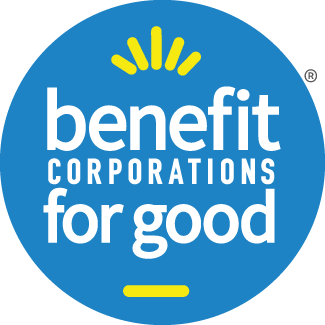How Earthcare and Self-Care Created a Sustainable Wine Country Retreat
Jennifer Leonard, Joshua Fidelman and Mary Anne Harmer on the sustainable homestead and retreat center known as Planet to People in Carlton, Oregon.
When Jennifer Leonard and her husband Joshua Fidelman chose to become a certified Oregon Benefit Company, their focus was on one thing: the Triple Bottom Line of People, Planet and Profit. Their heavenly parcel of the land in Oregon wine country is all about respect and environmental sustainability for the planet. So they have created an inviting and restful homestead and retreat called “Planet to People,” where you can spend the weekend learning about permaculture and healthy eating while enjoying Oregon wine from vineyards within walking distance
Their passion in being a sustainable and eco-friendly business stands out everywhere you roam and hike on nature trails on their peaceful property. It will offer you compelling evidence that earthcare is healthcare. And that positive impact on our planet is truly what the future is asking us to create.
Recently, we interviewed Jennifer and Joshua about becoming a certified Benefit Corporation for Good (BCFG). Here’s what she had to say about it, the motivation for doing it and why it was right for Planet to People.
1. What motivated you to become a Benefit Company?
In forming our business, we knew we wanted it to be more than just an income generator. We decided to practice a set of values that were in alignment with our desire to make a positive impact in the world. In addition, we were building our company with a focus on planetary and human health. So, it made perfect sense to commit to the triple bottom line of planet, people and profit.
2. Was it difficult getting internal support for moving toward this model?
We are a 2-person business so it was a pretty unanimous decision. :-)
3. How long did it take you to officially become a Benefit Company?
We started doing research over a year before applying but really started connecting with BCFG about a month before we were certified.
4. Have you seen any change in culture since you became a Benefit Company?
We have loved becoming part of the BCFG community and it has allowed us to modify what we want to accomplish. So in that way, yes, it has changed our culture. These business-to-business connections have allowed us to broaden our reach and think about new ways to make a positive impact on local communities.
5. Have you experienced any positive outcomes since becoming a Benefit Company?
We have found the certification has opened up conversations and attracted partnerships from other organizations who are curious or wish to make a positive impact themselves. We have enjoyed talking about why being an Oregon Benefit Company is important to us and how others might get involved.
6. Would you recommend this business model to others? Why or why not?
We believe that becoming a Benefit Company is not just a business practice, but a lifestyle choice that promotes responsible development of our economy, culture and communities. We have found that others in the Benefit Company community are drawn to it because it reflects their values as a person, not just a business. But, we know that this often takes extra time, focus and sometimes financial commitment. This may be a hard choice for those who have other commitments or responsibilities. But, we have suggested to those who are not able to choose a Benefit Company designation for themselves to support the same values by choosing to work with and buy from those who are Benefit Companies. In this way, everyone wins. :-)
7. What is the most important trait to have as a conscientious leader of a Benefit Company?
To remain open-minded and accepting to new ideas and people from all walks of life.
8. What lessons have you learned in the process?
Planning is only as important as being flexible. Small efforts can have a big impact, even if it's not the outcome you expected. It is possible to overdo it with pandemic baking. :-)
9. Is being a Benefit Company part of your current brand message?
Yes, it certainly is a part of our message and one that we are proud of.
10. What is the single best reason you'd give for another company or peer to become a Benefit Company?
The impact you have is larger than yourself and will likely continue beyond your time in business.
You can learn more about Planet To People here.
If you want to know more about why your business should become a benefit corporation, watch this.
Learn more about the 6 simple steps to becoming a benefit company or benefit corporation here.
~benefitcorporationsforgood.com~

